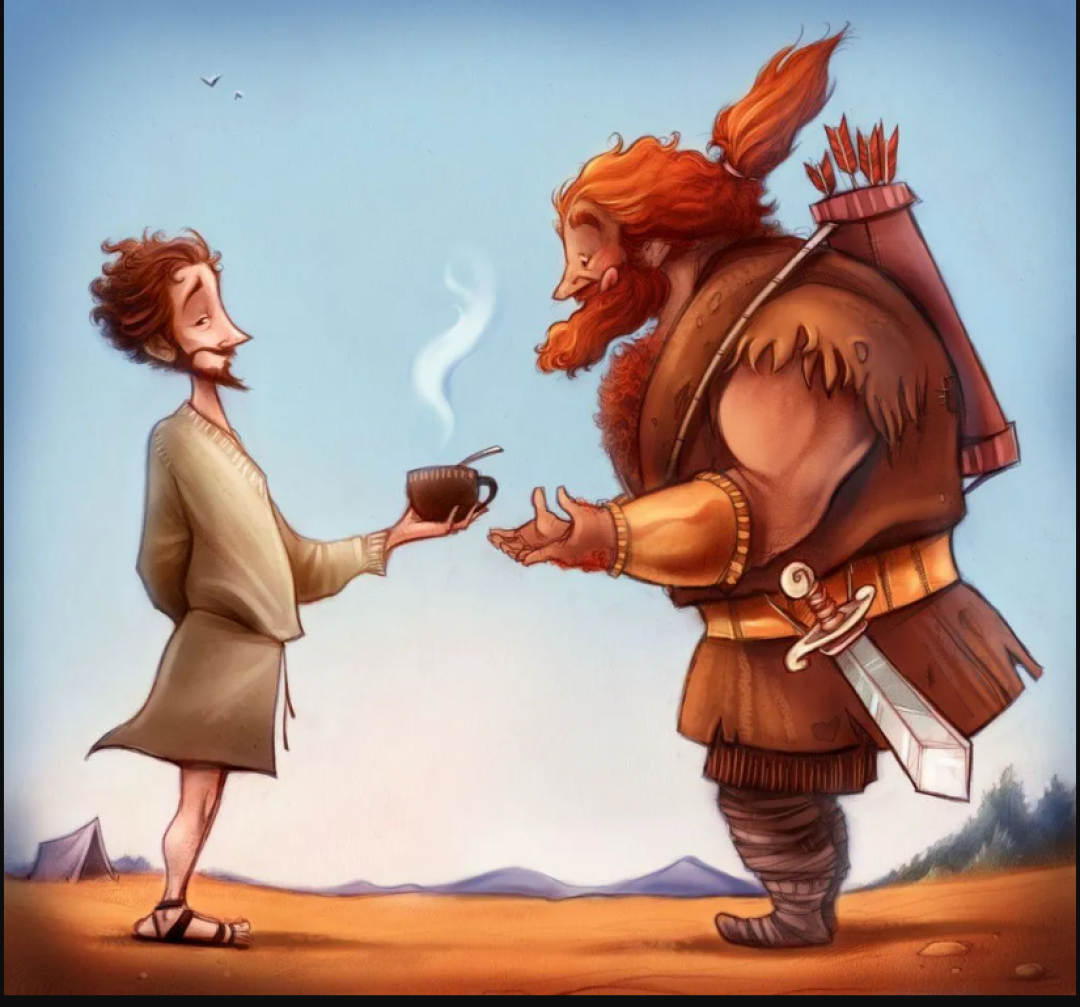
Once when Jacob was cooking a stew, Esau came in from the field, and he was famished. Esau said to Jacob, “Let me eat some of that red stuff, for I am famished!” (Therefore he was called Edom.) Jacob said, “First sell me your birthright.” Esau said, “I am about to die; of what use is a birthright to me?” Jacob said, “Swear to me first.” So he swore to him, and sold his birthright to Jacob. Then Jacob gave Esau bread and lentil stew, and he ate and drank, and rose and went his way. Thus Esau despised his birthright (Genesis 25:29-34, NRSV).
One starry night, a man named Abram (who would later be known as Abraham), lived in a world that did not know of THE LORD, who would later go by “the God of Abraham” as one of his names. THE LORD would bring him outside of one of the few cities that existed at the time and show him the night sky and promise him descendants who would outnumber the stars above him. THE LORD promised that his people would have a home, too. But these things would not come to fruition for a very long time, and the blessing would be passed down among his descendants. Abram and his wife Sarai (later known as Sarah) would miraculously have a child in their elderly years named Isaac, and Isaac would carry that blessing. Eventually Isaac grew up, got married and had twins, Esau and Jacob. Esau was the oldest, and he was the favorite of his father because Esau was a hunter, and Isaac loved the wild animals he brought home for the family. Jacob was a quiet man who lived in the tents, and he was a good cook. His mother was partial to him.
In the passage above, we find Esau hungry after a long day working in the field. He was not just a little hungry. He was famished. All he could think about was getting some of “that red stuff.” He did not even know what it was- he just wanted to get some food in his belly. Jacob offered him a deal. He could have some of the lentil soup Jacob had prepared, but he would have to give up his birthright in exchange. For a basic, nomadic family, this did not carry a lot of material benefit, but the blessing coming to Esau was the promise of God for a bright future for his descendants. Esau weighed a potential multi-generational gift versus his hunger and found the promises to be too pie in the sky compared to his real-world hunger. He chose the red stuff and did not seem to give it much thought at all.
Esau forgot the big picture, his relationship with God and how he was called to be a part of God’s plan. Instead, his focus was only on the problem right in front of him. His belly needed filling, and the temptation of a soup that would cost him everything was too much to bear. God seemed far removed. The food seemed lifesaving. Thus, the passage yields its first and most well-known lesson: Do not forsake your relationship, trust, and calling with God for earthly needs or fears. It is a very common lesson throughout scripture, and I would wager that every single person encounters this choice in some form several times during their life.
However, the second lesson of the passage is much more elusive. Consider Jacob, whom we often consider to be the hero of the story. In a household where his brother labored and hunted for the whole family, Jacob spent his time inside making a soup, which is commendable. Every group of people has their function in making things work. The problem comes when Esau comes in from the work and heat, and his bother takes note of his vulnerable position. Jacob takes advantage of Esau and extorts something holy. That is not hero-like behavior.
The lesson for Jacob would take decades to unfold. While Esau had forsaken his birthright, it was not really his to give yet. So, Jacob would have to try again some years later when their father was on his deathbed. Jacob and his mom would trick Isaac into blessing Jacob instead of Esau. Yet again, Jacob was taking advantage of a person who was vulnerable. While the trick worked, Jacob’s life would not become blessed. He would be on the run from Esau and be tricked himself into marrying the wrong woman.
It was not until many years later that Jacob would wrestle God in the wilderness. He was stubborn, even when injured (carrying less about his physical needs than the blessing he sought). When he received the blessing of his ancestors from God, it was because he had striven with God, and it was God who blessed him, and there was no trickery to it. Jacob was even renamed at this event and would be known as Israel, or “one who strives with God.”
So the final lesson, which took decades of Jacob’s life to learn, is that one cannot use power or manipulation to earn God’s blessing. Taking advantage of the vulnerable is not the way to receive or BE a blessing. The promise made to Abraham, and to each of us is predicated on a relationship with God in which we are steadfastly loyal to God’s vision and work.
Grace and Peace,
Rob

